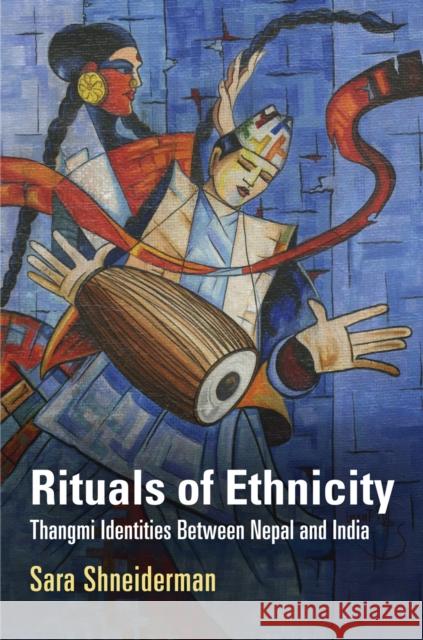Rituals of Ethnicity: Thangmi Identities Between Nepal and India » książka
Rituals of Ethnicity: Thangmi Identities Between Nepal and India
ISBN-13: 9780812224078 / Angielski / Miękka / 2017 / 328 str.
Rituals of Ethnicity: Thangmi Identities Between Nepal and India
ISBN-13: 9780812224078 / Angielski / Miękka / 2017 / 328 str.
(netto: 130,56 VAT: 5%)
Najniższa cena z 30 dni: 135,41
ok. 22 dni roboczych.
Darmowa dostawa!
Rituals of Ethnicity is a transnational study of the relationships between mobility, ethnicity, and ritual action. Through an ethnography of the Thangmi, a marginalized community who migrate between Himalayan border zones of Nepal, India, and the Tibetan Autonomous Region of China, Shneiderman offers a new explanation for the persistence of enduring ethnic identities today despite the increasing realities of mobile, hybrid lives. She shows that ethnicization may be understood as a process of ritualization, which brings people together around the shared sacred object of identity.The first comprehensive ethnography of the Thangmi, Rituals of Ethnicity is framed by the Maoist-state civil conflict in Nepal and the movement for a separate state of Gorkhaland in India. The histories of individual nation-states in this geopolitical hotspot--as well as the cross-border flows of people and ideas between them--reveal the far-reaching and mutually entangled discourses of democracy, communism, development, and indigeneity that have transformed the region over the past half century. Attentive to the competing claims of diverse members of the Thangmi community, from shamans to political activists, Shneiderman shows how Thangmi ethnic identity is produced collaboratively by individuals through ritual actions embedded in local, national, and transnational contexts. She builds upon the specificity of Thangmi experiences to tell a larger story about the complexities of ethnic consciousness: the challenges of belonging and citizenship under conditions of mobility, the desire to both lay claim to and remain apart from the civil society of multiple states, and the paradox of self-identification as a group with cultural traditions in need of both preservation and development. Through deep engagement with a diverse, cross-border community that yearns to be understood as a distinctive, coherent whole, Rituals of Ethnicity presents an argument for the continued value of locally situated ethnography in a multisited world.Cover art: Lost Culture Can Not Be Reborn, painting by Mahendra Thami, Darjeeling, West Bengal, India.











